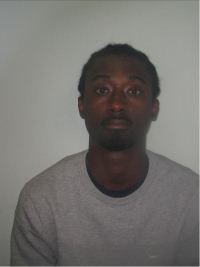Croydon man convicted for PC shooting
A man has been convicted at Kingston Crown Court for attempting to murder a police officer.
A man has been convicted at Kingston Crown Court for attempting to murder a police officer.
Damian Devine, 27, from South Croydon, was found guilty in a unanimous verdict of shooting PC Wayne Stevens in Croydon last year.
After answering a call from residents concerned about three men acting suspiciously, PC Stevens and two other officers arrived at Kingsdown Avenue on July 15, 2011. Two of the men were arrested, but Mr Devine fled the scene pursued by PC Stevens.
From a distance of approximately 10 feet, Mr Devine twice shot at PC Stevens, hitting him once in the arm. Forensics discovered that PC Stevens was shot by hollow-point bullets specially designed to maximise damage.
Mr Devine initially escaped apprehension, but detectives from the forces Trident Gang Crime Command launched an investigation and quickly identified him as the chief suspect. Knowing he had a brother in Northern Ireland, they liaised with the Police Service of Northern Ireland (PSNI). He was arrested in Belfast five days later.
During two property search in Northern Ireland, officers found 19 live, unfired 9mm short calibre cartridges, 11 of which were jacketed round-nose bullets, and eight of which were hollow-point bullets. Another search at Mr Devines Croydon flat discovered significant quantities of ammunition, component parts an Uzi sub-machinegun and a laptop with instructions on weapon conversion, and on July 22 he was charged with the attempted murder of PC Stevens and five other firearm offences.
Borough Commander of Croydon Chief Superintendent Dave Musker said the conviction would send a strong message about how the force deals with firearms offences.
Devine clearly had no regard for PC Stevens life when he made the decision to shoot him, not once but twice, he said.
He is obviously a dangerous individual with an unhealthy interest in firearms. His conviction will see him imprisoned behind bars for a long time.


